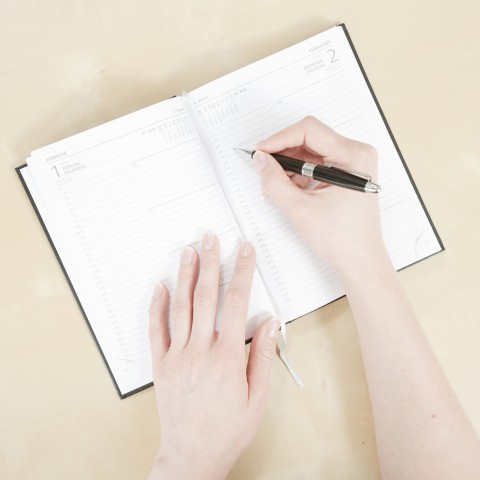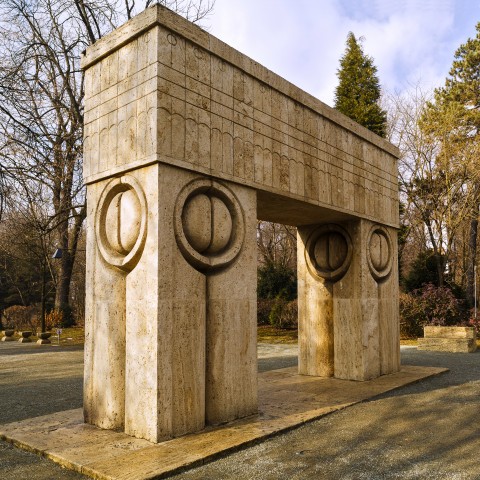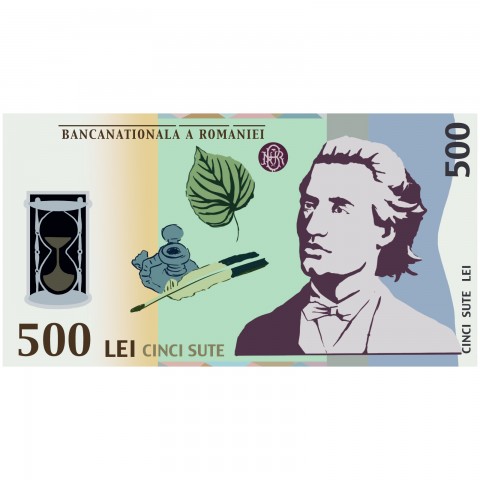
There’s a shortcut to Romanian fluency.
Well, not really. But there’s a great framework that can get you having comfortable conversations very quickly.
You see, people tend to have the same conversations with language-learners over and over. You introduce yourself, say where you’re from, and then probably ask why they’re learning that particular language.
And questions, naturally, are a big part of that. The whole conversation is a big back-and-forth of questions and answers.
If you want to get yourself speaking automatically in conversations, then you should take a look at the most common Romanian questions and answers. You’ll impress your conversation partner, and with that comes great motivation to keep pushing yourself to learn more.
 Table of Contents
Table of Contents
- Start with Yourself
- The Place You Call Home
- Linguistic Difficulties
- Following Up About Romanian
- The Burning Question for Romanian-Learners
- A Question for the Future Traveler
- A Taste of Romania
- Do This, Not That
- Life Back Home
- The Price is Right
- Conclusion
1. Start with Yourself

When you start introducing yourself in Romanian, you’ll want to know your interlocutor’s name!
- Care este numele tău?
“What’s your name?”
- Cum te cheamă?
“What’s your name?”
Right off the bat, we have two separate yet equivalent ways to ask someone for their name in Romanian. The first is pretty literal, translating nearly word-for-word into English. The only difference is that the word order for numele tău is switched, as is typical with Romanian possessive pronouns.
The second is similar to French, Spanish, and Italian: “What do you call yourself?”
To round it off, we can actually respond in a different way entirely.
- Mă numesc Rosa.
“My name is Rosa.”
2. The Place You Call Home

Although it’s a beautiful place, Romania isn’t nearly as much of a tourist destination as some of its neighboring countries, and Moldova is even less so. Therefore, people will definitely want to know where you’re from. This is one of those typical questions in Romanian that a foreigner can expect to hear a lot.
- De unde ești?
“Where are you from?”
This is a classic Romance language construction. Unde means “where,” and so de unde means “from where?” Look what happens to the preposition here:
- Sunt din Albania.
“I’m from Albania.”
In addition, you can give your nationality instead of saying where you’re from. In that case, remember that if you’re writing in Romanian, you shouldn’t capitalize nationality names.
- Sunt indian.
“I’m an Indian.”
3. Linguistic Difficulties
When visiting a Romanian-speaking country, you probably won’t need this question, but stop for a moment and think about when you might hear or be able to use this:
- Știi să vorbești românește?
“Do you know how to speak Romanian?”
Of course, you can swap out românește for any other language.
The answer depends on your comfort level with that particular language. Here are answers you might get if you flip the script and start asking people about their English ability:
- Nu pot vorbi bine engleză.
“I can’t speak English well.”
- Da, desigur.
“Yes, of course.”
4. Following Up About Romanian

Whether you’re tripping over your words or speaking elegant prose, the idea that a foreigner would invest a serious amount of time into studying the Romanian language is rather baffling to most people, to put it frankly.
As soon as you mention that you’re a learner, you’re bound to get this follow-up:
- De cât timp studiați limba română?
“How long have you been studying Romanian?”
You’ll note that the preposition de, meaning “since” or “from,” was also used in an earlier question to refer to physical space. Now, we’re literally saying “from which time?”
Interestingly enough, we don’t need to say “since” or “for” in our answers to this question. Just the amount of time is enough.
- Am studiat limba română doi ani.
“I’ve studied Romanian for two years.”
- Am început să studiez anul acesta.
“I started studying this year.”

5. The Burning Question for Romanian-Learners
We’ve established the fact that you’re learning and how long you’ve been learning, but the question that most people are holding back the entire time is “Why?” Statistically speaking, you probably don’t have to be learning Romanian.
And so not many people do—which makes you special.
- De ce înveți limba română?
“Why are you learning Romanian?”
Now, this is a question that can get you started on all kinds of tangents. Here are a couple of sentences to get you started:
- Pentru că țara este frumoasă.
“Because the country is beautiful.”
- Pentru că limba română sună frumos.
“Because the Romanian language sounds beautiful.”
- Soțul meu este român.
“My husband is Romanian.”
This particular question is practically guaranteed to come up, so one excellent study strategy would be to map out different responses that you could possibly have. When you do get asked, you can easily toss out a phrase and make a grand impression.
6. A Question for the Future Traveler

So, we’ve gone over questions that you’re likely to be asked in Romania or Moldova. How about outside of those places?
Interestingly enough, if you start up a conversation with a Romanian speaker outside of their home country, they’ll probably be significantly more talkative and curious about you. After all, they’re certainly not expecting you to speak their language! You should be prepared for Romanian questions like this one:
- Ai fost în România?
“Have you been to Romania?”
Note that we don’t say “to Romania,” but instead “in Romania.” This is the same structure you would use in German.
- Nu încă!
“Not yet!”
- Vreau să merg anul viitor.
“I want to go next year.”
7. A Taste of Romania
Romanian cuisine is unfairly overlooked across Europe and the rest of the world. Most people couldn’t name a single dish!
It’s likely that you’ll stay in a small bed-and-breakfast if you end up outside one of the main cities. In that case, your host will almost certainly interrogate you about your opinions on Romanian cooking.
- Îți place mâncarea românească?
“Do you like Romanian food?”
If the answer is yes, it’s wise, of course, to name something typically Romanian.
- Da, îmi place mămăliga.
“Yes, I love polenta.”
But if you’re panicking and nothing comes to mind:
- Totul este delicios!
“Everything is delicious!”
8. Do This, Not That

People learning Romanian by themselves are, no doubt, used to the effort required in finding good things to watch online.
One of the benefits of watching Romanian TV or videos online is that you’ll get exposed to the most common questions and answers over and over and over. Plus, you’ll get to see the body language and hear the responses that go along with it. It just so happens that a lot of these are questions that you can use with Romanian friends!
- Ce faci?
“What are you doing?”
- Nu fac nimic.
“I’m not doing anything.”
In this example, you can see the classic double negation that’s present in Romanian. Literally, you’re saying “I’m not doing nothing.” There’s no sense of it “canceling out” like it would in English; instead, it’s just a regular old negative.
- Ești ocupat?
“Are you busy?”
- Nu, doar citesc.
“No, I’m just reading.”
9. Life Back Home
As you get to know Romanians more and more, your small talk will become a little more personal.
In Romanian culture, family and familial ties tend to take on a little bit more importance than they do in American or English culture. Therefore, it’s pretty commonplace to ask about how someone’s family is doing.
- Ce mai face familia ta?
“How is your family?”
That ce mai face part can’t really be translated literally, but you can interpret it as a set phrase meaning “how is someone.” Note too, of course, that “your family” has a reversed word order in Romanian, becoming familia ta.
Here are a couple of examples of responses you might offer:
- Sora mea se căsătorește.
“My sister is getting married.”
- Toată lumea este sănătoasă!
“Everyone is healthy!”
10. The Price is Right

Although Romania isn’t really a place where you bargain for prices, knowing how to ask for the price is a valuable skill wherever you go. If you’re into hitchhiking (like many Romanians are), then that would be a perfect time to ask about money.
- Cât costă aceasta?
“How much is it?”
The word cât simply means “how many,” and costă is an easy cognate for “to cost” in English. You can expect the answer to be given in one of two ways. One way is with a full sentence using the verb a fi, meaning “to be,” or a costa. The other way is for the person to just give the number itself.
- Este două sute de lei.
“It’s two hundred lei.”
Remember that for numbers over twenty, the rules change ever so slightly: you have to add de! But to get around that, just say the number without saying what it is.
- Șaptezeci.
“Seventy.”
11. Conclusion
Now that you’re familiar with a solid handful of Romanian questions and answers, why not look for more on your own?
Go to the most popular YouTube channels in Romania or the Instagrams of Romanian influencers, and see what people are asking and answering.
Those little mini-conversations can be the perfect framework to help you get comfortable with Romanian interactions, and you’ll soon be following the native-speaker content like it’s nothing.
Or better yet, why comb through YouTube comments at all? By signing up for RomanianPod101, you can get access to podcasts with transcripts (itself a rarity in Romanian learning), vocabulary lists, and grammar resources all in one place, carefully selected and graded for your convenience.
These questions are really just the tip of the iceberg for your Romanian conversation preparation. Sign up with RomanianPod101 today and unleash your potential!
Before you go, practice right away by trying to answer one or more of the questions from this article in Romanian! We look forward to hearing from you.










